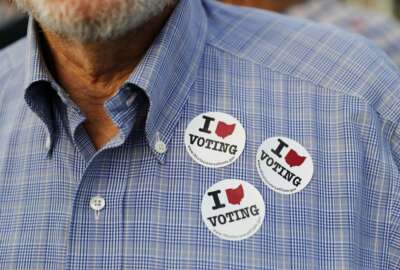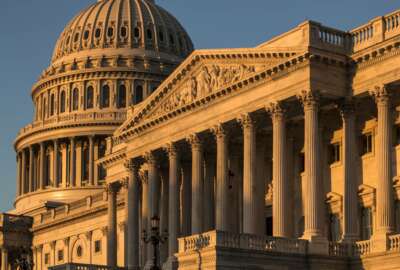
Pay raise, FERS cuts: Life after the election
Regardless of which political party wins today’s midterm election, federal workers are in relatively good shape.
Regardless of which political party wins today’s midterm election, federal workers are in relatively good shape.
Workers who retired under the old Civil Service Retirement System will be getting a 2.8 percent cost of living adjustment in January while those retired under the diet-COLA provisions of the Federal Employees Retirement System plan will get a 2 percent increase in their annuities. That’s for sure.
The Senate has approved a 1.9 percent pay raise for nonpostal federal workers. The issue of whether there will be a pay raise in January, and how much, will be decided in a joint House-Senate budget conference committee. If the raise clears Congress as part of a budget package, feds in localities such as New York, San Francisco-San Jose, Houston and the Washington, D.C.-Baltimore region would likely get even bigger increases.
Lobbyists representing rank-and-file feds, managers, executive and retirees are mostly cautiously optimistic that the pay raise will become law. They are also cautiously optimistic that the FERS retirement program, which was in great legislative danger earlier this year, may again escape major financially crippling cuts.
Earlier this year both the White House and a group of House Republicans proposed major changes in the FERS program which covers 90 percent of current federal and postal workers. The proposed changes would have raised the amount FERS workers kick into the retirement plan one percent each year over the next six years. Inflation-catchups for FERS retirees would be eliminated in future and those for CSRS retirees would have been reduced by 0.5 percent of the actual increase in inflation. Over time the Zero COLA plan would drastically cut the amount of money for FERS retirees.
Groups representing workers and retirees have for years been fighting a (so far) successful rear guard action to protect the CSRS and FERS retirement plans. But it seems to get tougher each year. Fortunately for workers and retirees, Congress has often been its worst enemy, first attacking the retirement plans then losing interest or running out of steam late in the year.
Most federal and postal unions this year have supported Democratic candidates for the House and Senate. Naturally they are hoping the Democrats will pick up 23 out of 80 seats that are realistically at play to take control of the House. They also hope the Senate will come under Democratic control.
But whatever the lineup of the new House and Senate, it won’t be in effect until January. That means feds and retirees are going to have to deal with the same politicians and the same problems until the end of the year.
Nearly Useless Factoid
By Amelia Brust
The highest-scoring word one can open with in a game of Scrabble is “muzjiks,” a Russian peasant.
Source: North American Scrabble Players Association
Copyright © 2024 Federal News Network. All rights reserved. This website is not intended for users located within the European Economic Area.
Mike Causey is senior correspondent for Federal News Network and writes his daily Federal Report column on federal employees’ pay, benefits and retirement.
Follow @mcauseyWFED




